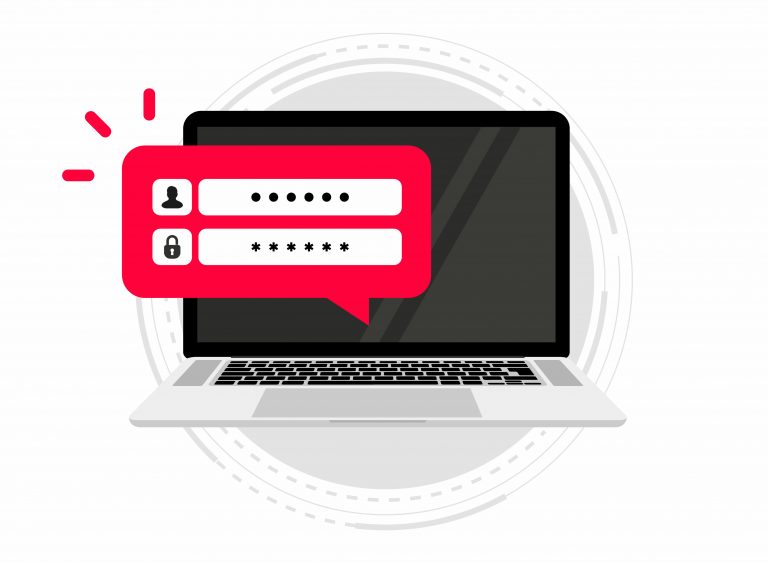Securing Your Health Data: Privacy Measures in Telemedicine
January 25, 2024Telemedicine has become an increasingly popular option for accessing healthcare services, allowing patients to consult with healthcare providers remotely. What…

Having your address publicly available on the internet can leave you vulnerable to identity theft, junk mail, and privacy concerns. It’s important to understand the risks of having your address available online and take appropriate steps to keep it private. This article will go through the risks of having your address public, the steps to take to remove it from the internet, and what measures you can take to protect your private information.
Identity theft is a serious risk for anyone who has their address listed in a public directory. This type of crime involves the collection and use of someone’s personal information, such as name, Social Security number, and mailing address, to open new lines of credit in their name without authorization.
Having your address publicly available can enable thieves to gain access to sensitive documents or goods sent to you in the mail. They might also use your information to commit identity fraud by creating false identities with fictitious financial accounts and businesses. This can hurt your financial standing, making it difficult or impossible for you to obtain new loans or credit cards in the future. Finally, identity theft can lead to serious issues such as unemployment and deportation if criminals use their real identities when arrested for criminal activities.
To prevent any form of identity theft from occurring due to public access to your address, take these steps:
1. Review the terms of all online accounts you have set up that could contain personal information
2. Obtain an Identity Theft Protection service
3. Check all three credit reports on a regular basis
4. Keep an eye out for suspicious activity on existing accounts
5. Opt out of listing your address in public directories
Having your address public can lead to unwanted contacts such as junk mail, cold calls, and sales. Junk mail can be an expensive hassle, with companies mailing numerous offers, catalogs, or other unwanted advertisements right to your doorstep. The constant influx of junk mail can not only be a nuisance but also put a financial strain on you as you could end up wasting money on extra paper and ink purchasing endless supplies of stamps. Furthermore, by sharing your address publicly you run the risk of data breaches exposing your address to malicious actors who may use that information for malicious activities such as entering it into illegal marketplaces or even breaking in and stealing from you.
One of the risks associated with having your address public is unwanted visitors. This can include solicitors, burglars, stalkers, or intruders who are interested in your property. Whether they’re trying to sell you some products or break into your home, they can put you and your family in danger by simply showing up on your doorstep or ringing the doorbell unexpectedly.
Having your address revealed publicly can also make it easier for criminals to target you and create a dangerous situation. It’s possible that criminals could use the information to locate other personal details about you, such as financial records or employment history, and use that data for their own malicious purposes. Additionally, if someone knows where you live, it can become more difficult to escape from any violent encounters that may arise due to an unexpected visitor at home.
In order to protect yourself from unwanted visitors and other security risks associated with having a public address, there are measures that you can take that will help protect your privacy and safety. You should be careful about posting addresses online or even providing them over the phone; keeping personal information private is a good way of avoiding unnecessary risks. Additionally, some cities provide additional security measures such as homeowners’ associations which require all visitors to be identified before entering a neighborhood; this extra layer of protection may help keep unwelcome visitors away from your home. Finally, it’s important to install any appropriate security measures around the property (e.g., alarms) and be alert when opening doors or windows at night so that any potential intruder doesn’t have access uninvited into your home.
Keeping your home address private and secure online is becoming increasingly important as people search sites and online databases with address information become more and more powerful. There are a few ways you can keep your address from being publicly available on the internet, and in this article, we’ll discuss the options in detail, including how to request the removal of your address from websites, how to set up a private post office box, and more.
The easiest way to remove your home address from Google search results is to request removal from Google directly. Depending on the country you live in, Google may offer different kinds of removal requests such as removal from its search engine or deletion of specific data points.
If you would like to request removal for any reason, you can click on the “Remove Content” button at the bottom of an informational card about yourself or a business, or click on the “Gear” symbol (next to “More”) and select “Request Removal”. On that page, you can fill out a form and provide details that will help Google consider your case.
You can also use other contact methods available by visiting https://support.google.com/gsp/?hl=en#topic=6080449 and filling out the contact us form directly. (This depends upon which country you belong to so please get further info regarding your respective country)
Once your request for removal is successfully submitted, it may take some time for it to become active in our search results—typically up to a few weeks, depending on how often our algorithms crawl those sites that contain your address information. However, it won’t be immediately removed since we must process the removal request first before making any changes to our search results. Please note that this process may take longer due to holidays or high-traffic seasons.
Using people’s search sites, anyone can potentially find your address online. To keep your information from being easily discovered, you should start by removing it from these sites. Most of the significant people search websites allow you to opt-out of their service. In order to help you with this process, here are a few of the most common sites and instructions for removing your address from each of them:
• WhitePages: You can easily opt-out of WhitePages by searching for yourself and clicking on “remove me” at the bottom of the page.
• PeopleFinder: You are able to remove or update your information using their opt-out form. You will need a valid email address in order to make changes to your profile.
• USA-People-Search: Similar to PeopleFinder, they provide an opt-out form where you can submit your request electronically.
• Intelius: This site has an automated system that allows you to remove personal details instantly once verified as the right person.
• SmartPages: They offer an email support line that can be contacted directly in order to make alterations or remove information completely.
Another helpful tip is to update Google Maps and Bing Maps with any new addresses or aliases so they do not appear in search results when someone searches for more personal information about you online.
Family tree sites are incredibly helpful when trying to trace your family history – but if you’re worried about financial or personal security, it’s worth taking the time to check any online accounts these sites may have created for you. Many family tree sites will create a public profile of an individual and include their current address. This can lead to your address being shared against your wishes.
If there is an online profile for you or a member of your family, make sure that all sensitive personal information (especially addresses) is removed or made private. Check the settings on the account and look up any specific instructions for privacy settings. Most sites have the option to keep information private and/or delete accounts entirely – make sure to utilize these options if they are available.
A private post office box can be a great way to keep your home address from becoming public and appearing in search results. It is a great way to protect yourself from privacy concerns, identity theft, and receiving unwanted junk mail. In this article, we’ll discuss the whole process of getting a private post office box and provide you with some tips on how to keep your address private.
Getting a private post office box is an effective and secure way to keep your address from becoming public. It can be used as a way to keep your home and/or business address safe and hidden from the public eye. Private post office boxes offer communities a secure, convenient place to manage their postal correspondence without revealing the identity or physical location of the users.
Finding a post office near you is relatively easy; you can use online tools such as Google Maps to locate the nearest postal office by providing your zip code or simply searching for a “post office” within your city. When you arrive, you will need to fill out an application form which will provide necessary information such as name, address (if given), phone number, email address, and an acceptable form of picture identification – such as a driver’s license or passport.
Once approved, you will receive a key for access to your mailbox and a notification when mail has been delivered. Post office box fees are typically paid in advance or on a monthly basis; fees vary depending on the size of the mailbox and costs generally range from $25 – $75 per month. You should also note that it may take up to two weeks for delivery of first-class mail if it is addressed to someone with a private post office box.
It’s important that you keep your post office mailing address confidential for security reasons; never give out this information publicly online or share it with strangers without prior verification – no matter how trustworthy they appear. Furthermore, always check with whatever service provider in using that they accept post office boxes before forwarding any package via courier services, etc…
Getting a private post office box is an important step for those who wish to keep their personal address from being made public. Not only does this ensure consistency, it also provides an additional layer of privacy and security. Here are a few tips for getting a post office box and taking advantage of the convenience and security it provides.
Firstly, check with your local post office to determine the best box size for your needs – prices will vary depending on the size you choose. You may want to purchase an extra large box if you receive many packages, but remember that these will be more expensive than smaller boxes. Also, be sure to choose a location near your home or work to maximize convenience when picking up packages or checking mail.
You’ll then need to provide a government-issued ID (such as a driver’s license) in order to complete the application process. Depending on your state, you may also be required to pay rental fees in advance – usually month-to-month or yearly terms are available. Once your application has been accepted and approved, you’ll be issued with a unique post office box number which should then replace any existing street address associated with your name at local listings or directories from that point onward.
Finally, have your mail forwarded from your existing residence address before canceling it completely; most reputable USPS offices will offer this service for free when filing applications for new boxes. Once these steps have been completed successfully, ensure that all incoming mail is addressed directly using only the new post office box number given and no longer utilize any old residence addresses going forward – this will guarantee the total security of packages and greater levels of protection from unwanted exposure of personal information online and elsewhere!
A virtual mailbox is an online address and package forwarding service that helps to keep your physical mailing address private and secure. When you sign up for a virtual mailbox, a physical mailing address at a post office or other retail storefront is assigned to you. Your mail is then scanned and uploaded for easy access from any device, giving you complete control over how you handle emails, packages, bills and more. With your virtual mailbox, all of your mail is delivered straight to the secure online interface which you can check at any time from any device. Additionally, many services also offer extra-cost options like pre-sorting mail into categories such as bills, junk mail, and important documents to help keep your inbox organized and minimize unnecessary paperwork.
Although setting up a virtual mailbox doesn’t offer the same level of privacy as getting an official Post Office Box (PO Box) would, it does provide greater security than having a public address. This can be especially important if you are concerned about protecting sensitive information or keeping certain personal information such as bank statements or credit card bills private. Additionally, using this type of service also makes it much easier for international travelers who need to access their mail securely from anywhere in the world without having to worry about unwanted visitors or theft.
Your home address is one of the most important personal details that you need to protect from getting out in the public. If your address is available online, it can result in unwanted junk mail, identity theft, or even other privacy concerns. In this article, we’ll discuss how to keep your address from being public by using a virtual mailbox, requesting removal from search results and people-finder sites, opting out of public records, and other methods.
Opting out of public records is an effective way to keep your address private. While the majority of addresses are included in public records, it’s possible to opt-out and prevents them from being accessed by the public.
There are two main ways to opt out of making your home address available in public records. The first is by submitting a formal request with the relevant governmental authority, stating that you do not wish your address to be included in public records. The second option is to hire a professional privacy firm that can legally block access to your address in all state and federal databases.
Before opting out of public records, it’s important to consider the impact on commercial mailings and other services that rely heavily on accurate information from government databases. It’s also important that you review your state’s privacy law before making any decisions about opting out of public records.
Your state or local court may have resources for individuals wishing to protect their personal information from becoming publicly available; these will likely provide step-by-step instructions on how to proceed with opting out regarding this specific matter. Additionally, you should check if there are any additional services available through private companies, such as those listed above, which offer services for blocking access to personal data online (e.g., addresses). Doing so right away can help you feel more secure about keeping your home address private and secure from unauthorized access by the general population.
Phone books are one of the quickest and most accessible places for people to find your address. Removing your address from phone books is an effective way to limit public access to your personal information. The telephone industry has a full slate of services enabling you to keep your address private.
You can opt-out of phone book deliveries by registering with the National Do Not Call Registry, which will remove your name, address, and telephone number from city, suburban, mid-sized and larger phone books. You can also subscribe to toll-free number blocking services which will reroute incoming calls directly to voice mail or allow you to screen incoming callers using voice mail banners or prerecorded messages. Moreover, directory publishing companies like Yellow Pages and SuperMedia have developed programs that allow you to opt-out entirely by submitting a written request with proof of identity.
Even if you have previously chosen not to display your name or street address in print directories, it may still appear on web-based directories or search engine results pages due to caching or public sources like land records and voter registration data. To remove this information from search engine results pages, contact each search engine’s customer service department directly for removal instructions tailored to their particular requirements. Following these steps should help keep your address private!
People Finder sites are websites that allow individuals to search for someone else’s address and contact information. These sites are an easy way to find out info about a person, but they can also be used in malicious or intrusive ways. To avoid having the information you don’t want to be shared get collected and distributed on the internet, it’s important to completely remove your address from people finder sites.
Take steps to update any outdated or incorrect details on these websites so users can’t find your personal information by searching with it. Most of these sites allow you to remove yourself from their listings; however, this process is usually complex and time intensive as there are dozens of different people finding websites out there!
To make removing yourself easier, use a do not list service. This is a company that will help keep track of all the different people finding websites on which your name and address might appear. They will then go through each one of the sites and delete your address from the public listing if possible, or else put a notice up informing potential searchers that you have opted out of this type of search result. This is one way that you can quickly take back control over who has access to your personal information online!
Keeping your home address private is a vitally important part of maintaining your online privacy. There are many steps you can take to ensure that your address does not appear online or in public records. In this article, we have explored all the available options for keeping your address from appearing online – from opting out of public records to setting up a post office box and more. Now, let’s review our final thoughts and look at some best practices for keeping your home address private.
The anonymity of the Internet enables almost anyone to find someone’s contact information, such as their email address or phone number. To maintain your privacy and reduce your risk of being contacted by unwanted people, it is important to be mindful of the ways in which you share your contact information online. Here are some tips to help protect your privacy and keep your personal information out of public view:
-Remove data associated with old accounts: When you close an account or delete an app, make sure that any contact information associated with that account is also deleted. You may have to look through the app’s settings to ensure that this is done correctly.
-Set strong passwords: Effectively securing all of your online accounts can help protect against potential attackers from gaining access to your personal information. Try using strong passwords with a combination of random characters and numbers, as well as using two-factor authentication for added security.
-Be careful what you post: Make sure that any personal details (e.g., address) are not shared in posts on social media sites or when submitting any information for online services. Additionally, be aware of how the websites and services you use might share or sell the data collected from their users.
-Create privacy walls: If available on a given platform, using visibility restrictions to create more private walls around sensitive topics can reduce public access to certain pieces of information (e.g., address). Additionally, some sites may allow removal requests in cases where they have posted inaccurate or outdated data about you; search reliably before deciding if this option is right for you.
By following these basic steps you can minimize the likelihood that strangers are able to get access to unwanted contact information about yourself and protect against potential criminals targeting your private data online.
Keeping your address and other personal information private is a critical step to protecting yourself online. It can be difficult to remain anonymous within the confines of a digital world, as contact information is frequently shared. Luckily, there are several measures you can take to minimize the chances that your address will become publicly visible.
First, create complex passwords for each of your online accounts and change them regularly. This will help fend off potential hackers who may try to access your private data. Secondly, make sure the security settings of all your social media platforms are set to private. And lastly, do not post any personal information on public forums such as blog comments or message boards — this includes links with addresses embedded in them!
In addition to these steps, there are other options available for those looking for more privacy: consider setting up a PO box instead of specifying an exact address when ordering goods online, or avoid registering with sites that require you to enter contact details like your address or phone number if you do not plan on using that service immediately. By implementing these practices and taking the time to evaluate any requests for sensitive data before granting access, you can greatly reduce your chances of having an unwanted breach of privacy which could lead to unpleasant consequences down the line.
Using a post office box is one of the best ways to ensure that your address is kept private. With a post office box, you will receive mail from external sources without having to reveal your exact address. Depending on the size of the post office box, you may even be able to receive larger packages along with the mail.
Consider what type of mail you want to keep private, then decide if using a post office box is an option for you. Many postal offices offer different boxes in various sizes and cost structures that fit any budget or need.
When setting up a post office box, it’s important to keep in mind that different mail services such as UPS or FedEx do not deliver to such boxes. You may consider signing up for package forwarding services run by companies like MyPackage LLC and Package Conciergewherein they take delivery of all packages addressed to your PO Box, and then ship them on to wherever else they need to go.*
In addition, renting out a P.O. Box also gives you access to other perks such as being able to expedite delivery times through their VIP customer service program or having detailed tracking available if prefer having constant updates about the progress of your package. However, be aware that these features often incur additional fees.
Overall, renting out a P.O. Box can provide numerous advantages in terms of privacy protection; so if you’re looking for a secure way of keeping your personal information confidential without compromising customer satisfaction when ordering online – this may be the option for you!

Telemedicine has become an increasingly popular option for accessing healthcare services, allowing patients to consult with healthcare providers remotely. What…

In a world where cyber threats are becoming increasingly sophisticated, the importance of having strong passwords cannot be overstated. But…

Are you looking for a new job while still employed? Discreet job searching online is the key to keeping your…